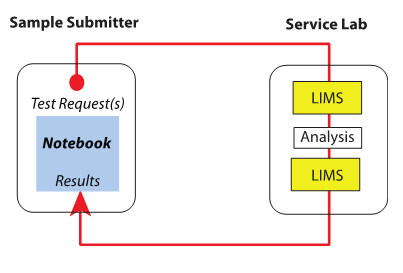Difference between revisions of "Template:Latest news"
Shawndouglas (talk | contribs) m (Protected "Template:Latest news": Locked as if front-page content ([Edit=Allow only administrators] (indefinite) [Move=Allow only administrators] (indefinite))) |
Shawndouglas (talk | contribs) (Updated news.) |
||
| (52 intermediate revisions by 2 users not shown) | |||
| Line 1: | Line 1: | ||
<h2 style="font-size:105%; font-weight:bold; text-align:left; color:#000; padding:0.2em 0.4em; width:50%;"> | <h2 style="font-size:105%; font-weight:bold; text-align:left; color:#000; padding:0.2em 0.4em; width:50%;">June 1, 2024:</h2> | ||
[[File: | [[File:WLA icon news.svg|left|120px]] '''It's been a while. How about a few updates?''' First, today you'll notice a bit of a refresh of the front page. It was becoming increasingly obvious that for a wiki that's been around for well over a decade, finding something across the various namespaces (i.e., areas) still wasn't easy. A plethora of links were pasted across the front page, but that wasn't enough. This front page update is the first of several steps towards making knowledge and information a bit more findable on the wiki (there's always more that can be done). We now have a mini search portal for our four larger non-encyclopedic areas: guides and white papers, Q&A articles, journal articles, and books. This not only highlights these four areas more prominently but also gives users several ways to search and navigate the content in those areas. Second, a difficult decision was made to scale back vendor content. To the point prior about highlighting this wiki's encyclopedic and non-encyclopedic knowledge repository, it was time to move the vendors from the encyclopedic space to their own namespace, the ''Vendor:'' namespace. While vendor content is still highly useful to LIMSWiki users, its no longer as front-facing. Additionally, maintaining feature tables for each vendor was increasingly labor-intensive. As such, feature tables were removed, recognizing at the same time the onus remains fully on vendors to be more transparent about making public the full functionality of their offerings so potential buyers can make more informed decisions. Vendor records still retain their history, highlight offerings (i.e., LIMS, LIS, ELN, SDMS, and CDS), industries served, and other original information. [[User:Shawndouglas|Shawn Douglas]] ([[User talk:Shawndouglas|talk]]) 19:06, 1 June 2024 (UTC) | ||
<br /> | |||
<h2 style="font-size:105%; font-weight:bold; text-align:left; color:#000; padding:0.2em 0.4em; width:50%;">November 20, 2023:</h2> | |||
[[File:Fig3 Liscouski SciStudGuideLabInfo23.png|left|180px]] '''Are you studying some sort of [[laboratory]]-based science in university?''' How well do your classes address [[laboratory informatics]] topics, particularly in the scope of industrial labs and how they operate outside of academia? If you find the discussion lacking, then his guide by industry veteran Joe Liscouski will be worth a look. In his guide ''[[LII:A Science Student's Guide to Laboratory Informatics|A Science Student's Guide to Laboratory Informatics]]'', Liscouski presents "an annotated map of the laboratory portion of a technological world, identifying critical points of interest and how they relate to one another, while making recommendations for the reader to learn more." Hope you find it useful! [[User:Shawndouglas|Shawn Douglas]] ([[User talk:Shawndouglas|talk]]) 18:48, 20 November 2023 (UTC) | |||
<br /> | <br /> | ||
Latest revision as of 19:06, 1 June 2024
June 1, 2024:
It's been a while. How about a few updates? First, today you'll notice a bit of a refresh of the front page. It was becoming increasingly obvious that for a wiki that's been around for well over a decade, finding something across the various namespaces (i.e., areas) still wasn't easy. A plethora of links were pasted across the front page, but that wasn't enough. This front page update is the first of several steps towards making knowledge and information a bit more findable on the wiki (there's always more that can be done). We now have a mini search portal for our four larger non-encyclopedic areas: guides and white papers, Q&A articles, journal articles, and books. This not only highlights these four areas more prominently but also gives users several ways to search and navigate the content in those areas. Second, a difficult decision was made to scale back vendor content. To the point prior about highlighting this wiki's encyclopedic and non-encyclopedic knowledge repository, it was time to move the vendors from the encyclopedic space to their own namespace, the Vendor: namespace. While vendor content is still highly useful to LIMSWiki users, its no longer as front-facing. Additionally, maintaining feature tables for each vendor was increasingly labor-intensive. As such, feature tables were removed, recognizing at the same time the onus remains fully on vendors to be more transparent about making public the full functionality of their offerings so potential buyers can make more informed decisions. Vendor records still retain their history, highlight offerings (i.e., LIMS, LIS, ELN, SDMS, and CDS), industries served, and other original information. Shawn Douglas (talk) 19:06, 1 June 2024 (UTC)
November 20, 2023:
Are you studying some sort of laboratory-based science in university? How well do your classes address laboratory informatics topics, particularly in the scope of industrial labs and how they operate outside of academia? If you find the discussion lacking, then his guide by industry veteran Joe Liscouski will be worth a look. In his guide A Science Student's Guide to Laboratory Informatics, Liscouski presents "an annotated map of the laboratory portion of a technological world, identifying critical points of interest and how they relate to one another, while making recommendations for the reader to learn more." Hope you find it useful! Shawn Douglas (talk) 18:48, 20 November 2023 (UTC)










